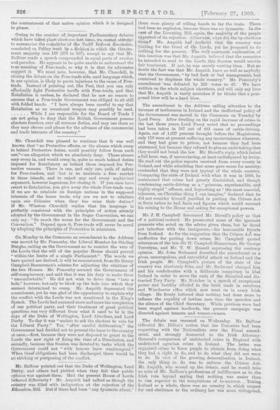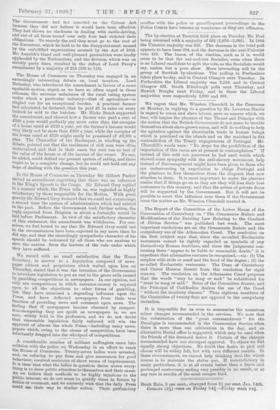The debate was resumed on Wednesday. Mr. Balfour ridiculed Mr.
• Dillon's notion that the Unionists had been coquetting with the Nationalists over the Fiscal amend- ment, and strongly demurred to the Irish Attorney. General's comparison of undetected crime in England with undetected agrarian crime in Ireland. The latter was organised crime to force people to abstain from doing what they had a right to do, and to do what they did not want to do. In view of the growing demoralisation in Ireland, the only thing to do was to enforce the Crimes Act. Mr. Asquith, who wound up the debate, said he would take no note of .Mr. Balfour's professions of indifference as to the Irish vote beyond saying that nothing was easier than to r1138 superior to the temptations of to-morrow. Taking Ireland as a whole, there was no country in which respect for turd obedience to the ordinary law was more widespread. The Government had not resorted to the Crimes Act because they did not believe it would have been effective. They had shown no slackness in dealing with cattle-driving, and out of all those bound. over only four had violated their obligations. To remedy the evil they must go to the root of the discontent, which he held to be the disappointment caused by the unfulfilled eapectatione aroused by the Act of 1903. Mr. Asquith's bland and well-phrased generalities were loudly anplauded by the Nationalists, and the division, which was on strictly party lines, resulted in the defeat of Lord Percy's atnendment by a majority of 218 (336 to 118).







































 Previous page
Previous page